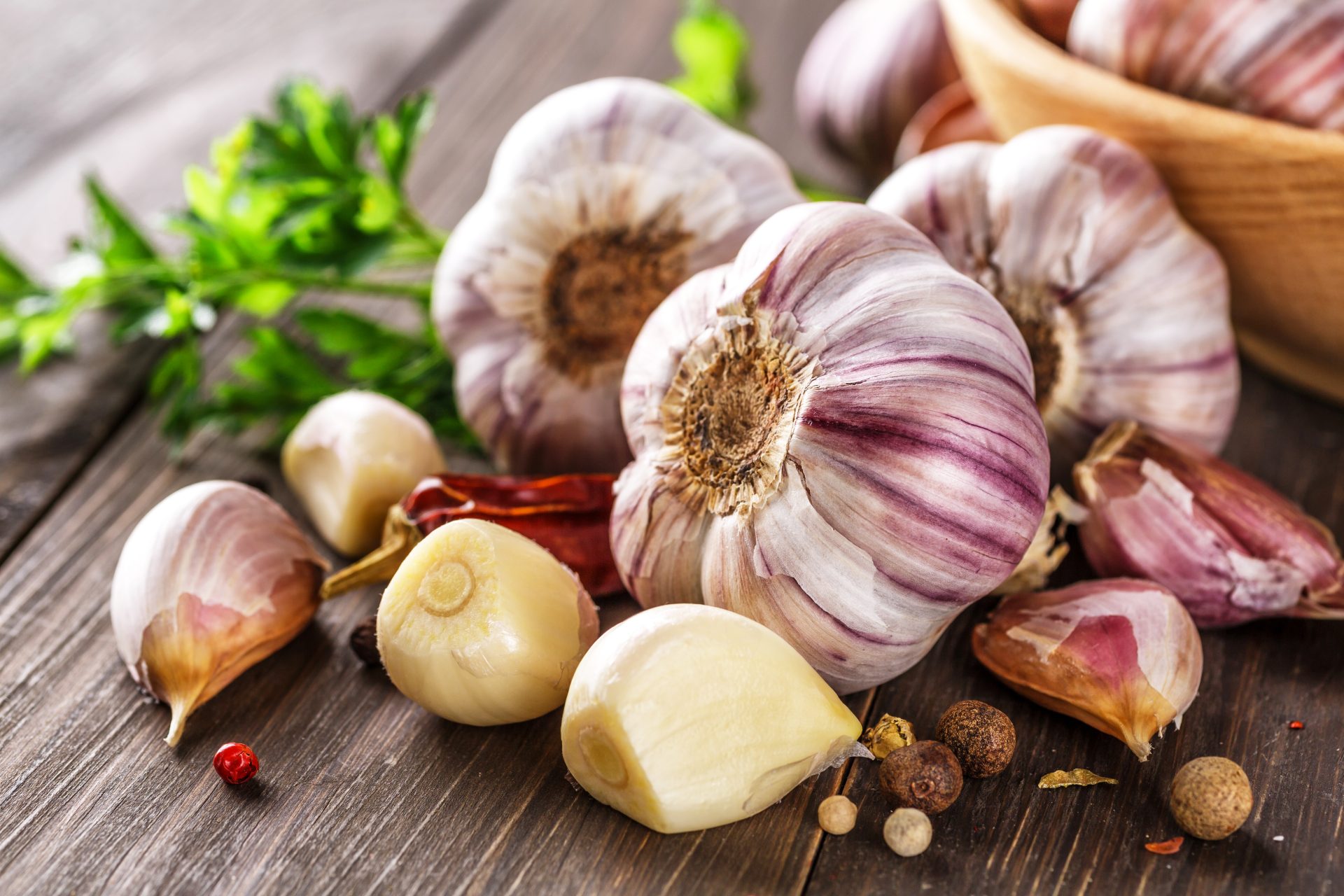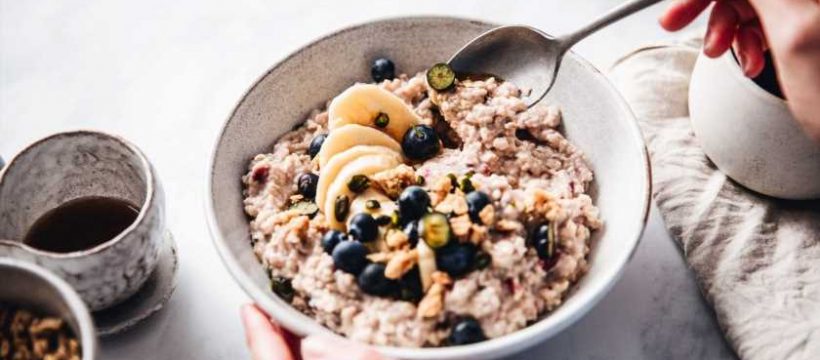This January, we’re on the search for quick, accessible hacks to kickstart 2023 in the strongest way possible. Today’s nutrition kickstarter: the 10 ‘superfoods’ we all need to eat more of.
We all know that a healthy, varied diet is great for us, but advice on what to eat to achieve this can be confusing, and often faddy. The recent interest in superfoods – a term coined by marketers in the early 20th century to boost the popularity of bananas – can make other really great foods seem less healthy when, in reality, these superfoods aren’t necessarily any better for us than other nutrient-dense choices.
We spoke to nutritionists about the top foods they’re eating this year, to make sure you get the most nutritional bang for your buck.
Vegetables
“While there’s always talk about new ‘superfoods’, some of the most common vegetables that we can grow easily in the UK are often the best foods we can eat for our health,” says nutritionist Alexandra Allan. “It’s win-win: great for the environment as well as for us!”
Beetroot
“Beetroot is one of my favourite foods,” enthuses Allan. “It’s a fantastic natural detoxifier and great for supporting liver health in general. It’s also a good source of betaine, which helps prevent excess fatty deposits in the liver and helps break down toxins.”
Beetroot has a whole host of health benefits, as Allan explains: “Beetroot is chock-full of vitamins, minerals and antioxidants including vitamin C, zinc, magnesium, selenium, calcium and iron, so it’s great for supporting the immune system. Plus, beetroot also contains nitrates, which help relax blood vessels, improve blood flow, reduce blood pressure and even increase sporting performance.”
Just remember you’ve eaten it otherwise you might get a shock when you use the bathroom – beetroot’s gorgeous deep red colour is caused by a compound called betanin – which may cause your wee and poo to turn red for a few days.
You may also like
All the reasons beetroot could be great for your exercise and running performance
Broccoli
“If ever there was one true superfood, it is probably broccoli,” says Allan. “Broccoli has many health benefits; aside from vital vitamins, minerals and fibre, broccoli is a good source of sulphur compounds, which support one of the body’s main detoxification pathways.”
Broccoli is also great for our hormone balance. “Broccoli contains an important compound called indole-3 carbinol,” explains Allan. “When you eat broccoli, it gets turned into diindolylmethane (or DIM for short). DIM is great news for reducing some of the potentially harmful effects of too much oestrogen.”
And if you haven’t tried roasted broccoli yet, take this as a sign.

Garlic
“Most of the health benefits of garlic come from the sulphur compounds released when garlic is crushed, chopped or chewed,” says Allen. “Sulphur is one of the ingredients that are incredibly useful for supporting the detox process – particularly when it comes to ridding the body of heavy metals. Also, garlic contains vitamin B6, vitamin C, manganese and selenium, plus smaller amounts of many other things your body needs.”
The humble garlic clove has been shown to help reduce blood pressure and improve cholesterol levels. “Garlic contains potent antioxidants that may cut the damage caused by free radicals involved in the ageing process,” says Allen. “This may reduce the risk of cognitive problems like Alzheimer’s and dementia.”
Pretty amazing stuff.
Herbs and spices
Ginger
“Ginger is an incredible addition to any diet and has a large number of scientific studies to back this up,” advises nutritionist Hannah Hope. “Its health benefits range from pain reduction to controlling appetite and nausea. Its anti-inflammatory properties can help with muscle pain, inflammatory conditions and gastric discomfort and it has also been shown to help increase HDL cholesterol and increase the breakdown of fat. These are just a few of the positive actions of including ginger in the diet. Have it grated in food or smoothies, in a juice or as a tea.”
Turmeric
“Ginger and turmeric are both in the same food family and both are loaded with anti-inflammatory benefits,” says nutritionist Samantha Gold. “They are often found together as ingredients in herbal teas and in supplements, and recent studies have shown that they may, in fact, work better together as an anti-inflammatory.
“Turmeric contains the polyphenol curcumin, which contributes multiple anti-inflammatory benefits. In fact, research shows that curcumin may have a similar effect as NSAIDs (eg aspirin and ibuprofen) to treat pain and aches from knee osteoarthritis,” she tells Stylist.
Seeds
“Seeds are such an easy thing to include in our diets,” says Gold. “You can add them to smoothies, puddings or as a topping on yoghurt, and they have so many benefits.”
A great option for vegans, our experts reveal their top three.
Chia seeds
“Chia seeds provide an excellent source of anti-inflammatory omega-3 fatty acids that have numerous benefits, including glowing skin and mental clarity,” explains Gold.“Just one ounce of chia seeds packs a whopping 10 grams of fibre. Its insoluble fibre acts as a prebiotic that feeds friendly gut bacteria and ferments into short-chain fatty acids to support gut health. Chia seeds also contain more protein than most plant foods and more calcium than milk.”
You may also like
What are the benefits of eating chia seeds?
Hemp seeds
“Hemp seeds are one of the few sources of complete plant-based protein,” says Gold. “They contain all nine essential amino acids that cannot be made by the body and that you must therefore get from food, as well as providing healthy omega-3 fats, protein, B vitamins, magnesium, zinc and iron.
Flaxseeds
“Flaxseed, also known as ground linseed, is something that I add to my daily smoothie or oats,” says Hope. “They are a good source of fibre, protein and omega 3, so are hormone supportive and benefit overall heart health. As a good source of fibre, the seeds help hormone detoxification, cholesterol levels and blood pressure. They also contain alpha-linolenic acid (ALA), an Omega 3 that’s from plant-based sources, good for brain health and anxiety. They are also good for your gut, helping with both constipation and diarrhoea, as it adds bulk to the stool and softens it.”
And the good news is it’s super easy to include in your daily diet. “I add one or two tablespoons to my breakfast, but you can also sprinkle it on salads, soups or add to baking,” recommends Hope.
Nutritional yeast
Loved by vegans looking for a cheesy hit, nutritional yeast is a deactivated yeast and a good source of protein and B vitamins for vegans or those with restricted diets.
“It’s really flavourful and has an almost cheesy, nutty type taste,” explains Hope. “Look for a fortified nutritional yeast as it will have good levels of B vitamins, especially B12 which is generally missing from the diets of those that don’t eat animal products. It is also a complete protein, one that contains all nine essential amino acids. It is also a source of glutathione, an antioxidant essential for the body’s immune system. Use it to sprinkle over food such as pasta or salad, in soups and sauces (or even eggs if you’re not vegan).”
You may also like
9 winter nutrition hacks for boosting energy and supporting immunity this season
Green tea
If, like me, you’re a fan of a good old cuppa, this is excellent news.
“There are a whole host of health benefits associated with drinking green tea,” says Gold. “This is due to its antioxidant content, and its health benefits range from cancer and cardiovascular disease prevention to being neuroprotective and having cholesterol-lowering effects, among many others.
“Build in small habits like drinking a green tea daily, have it a set time if that helps you remember and you will get a multitude of health benefits from it,” advises Gold.
Excuse me while I go and pop the kettle on.
Images: Getty
Source: Read Full Article
